Wandering thoughts - Gaining focus.
How amazing it is to get on a job and finish it in no distance time. Isn't it amazing when you get lost in the job while completing a task? You just lost track of time completely and sometimes I even forget to eat. The feeling is just too exhilarating.
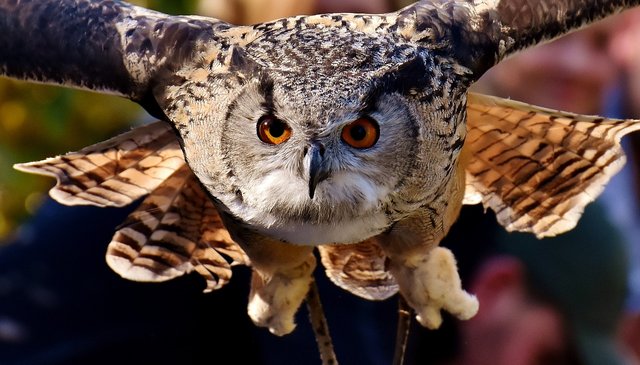 central point of attraction. (Photo Credit: Pixabay)
central point of attraction. (Photo Credit: Pixabay)Few days ago I had a chat with my sister and I told her I am beginning to lose focus at work and suggested I work on "my wandering thoughts" which forced me to ask a few questions,
- How does focus works?
- How do we gain focus?
- How do we lose focus?
- What's the science behind focus?
- Can I train myself to be focused?
- How do I gain my lost treasure?
I will be sharing a few of my findings on the subject "Focus" in this article. You will probably get answers to six(6) of my questions by the end of this article. Let's start with what Focus is.
Definition.
Dictionary.com defines it as "a central point, as of attraction, attention, or activity" ref
Personally, I would define focus as giving in your all to a particular function. (body, mind and soul) LOL.
How does focus works?
To keep our attention spans from burning out, first it's is essential we know and understand how they work.
Attention span refers to the total amount of time spent on a single task without losing concentration to something else.
Attention span can be divided two,
- Transient attention.
- Focused attention.
Transient attention: This refers to the quick response given to stimulus which attracts or distractes us for a short while. It is responsible for the pull/push in attention.
Focused attention: This is a longer amount of concentration given to stimulus mostly after transient attention have occurred, focused attention kicks in and last for a long period say 10 to 20 minutes in adults.ref While in younger children, the time span is much shorter.ref which is why toddlers tend to loose focus more often including while playing, watching a movie or even eating. They may have to leave their food for sometime and get back to it when the later gain interest of probably feel a little hungry.
Though this children tend to be more focused while watching their favorite cartoon because humans can decide to re-focus on a particular thing repeatedly ref Which is why when staring at a distance object you blink yet you still focus on that same object even after the blink which is supposed to get you distracted.
Now that we have cleared that, how do we concentrate?
How do we concentrate?
Concentrating on a particular job at hand is similar to staring at a distant object and obeys same principles just like I said while talking about "focused attention". Alina Vrabie refers to gaining concentration as a Top-Down process. The moment we decided to take a break and look at a distance object, our brains first gather all visual information, refine the information gathered and point our direction to what we should concentrate our attention on. Which is more reason why initially the object looks blur and in milliseconds it becomes clear and the surrounding becomes blur allowing you to have "focus" on the object or task at hand ignoring the surrounding and outside stimuli. (the power of our Brian is amazingly wonderful)
How do we lose Focus?
We tend to lose focus the moment our brain notice any thing that needs our immediate attention as a reaction to stimulus and this is natural for all animals. It is nature's own way of keeping us save and out of danger. The moment our brains senses any thing that is either appealing or dangerous, it processes it and interprets it as something that needs our attention and we lose focus almost immediately. Alina Vrable refers to this as "botton-down".
The Science
The human brain is divided into two systems,
- Parietal cortex
- Prefrontal cortex.
For the purpose of the article we may refer to them as "system 1" and "system 2" respectively.
Parietal cortex: This is the system that induces automatic attention, it is in charge of the involuntary actions we make. It's always on alert, takes in stimuli, process it and then make quick decisions for us and most of the times we tend to just follow this decisions automatically.
For instance, a sudden dog bark behind you or a really loud mention of your name or maybe while enjoying nature in your favorite park, a cheetah escaped it's den and it's standing 100 meters away from you. These riveting events triggers the cortex behind your ear, and the neurons of your parietal cortex begin to emit fast electric pluses which immediately process attention automatically. This is what tells you to run. 😂 LOL
Prefrontal cortex: Prefrontal cortex or "system 2" is in charge of the voluntary or let's call it the willful concentration.
When system 1(the parietal cortex) collects data from our surroundings and processes them and makes possible suggestions which system 2(the Prefrontal cortex) collects, process and then, I makes final decision weather to react or not to react thereby deciding where to allocate attention.
The Prefrontal cortex is located just directly behind our foreheads and its neurons emits electric impulses at a slower frequency compared to that of the parietal cortex (system 1) thereby giving us enough room to allocate attention ourselves.
Focused attention of our surroundings, faces, objects which is referred to as "Visual spatial attention" is been controlled by part of system 2 called Inferior Frontal Junction (IFJ).
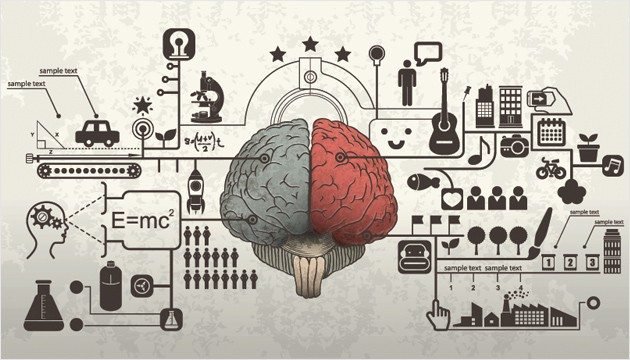 The human brain is divided into two systems. (Photo Credit: Doggygraph/Shutterstock)
The human brain is divided into two systems. (Photo Credit: Doggygraph/Shutterstock)Now this is getting interesting right? Let's relate the science to how we lose and gain focus.
How we lose focus. When we get distracted, system 2 tries to keep us focused by fighting suggestion from system one. Daniel Goleman describes the two types of distraction in his book titled "Focus: The Hidden Power of Excellence" as sensory distraction (distraction caused by activities in our surroundings like a phone call, noise, or any activity in our surroundings) and emotional distraction (which is caused by thoughts of our heart called "the inner dialogue").
Emotional distraction is usually the most distracting, try remembering a period in your life when you had thoughts about sad life happenings in your life and had a task you needed to focus on. You can tell it wasn't easy getting the job done.
Goleman explains that when ever we had a bothering emotion weighing our mind it is really difficult to suppress such emotions because our brains interprets such as problems that need solutions thereby allocating attention to it automatically.
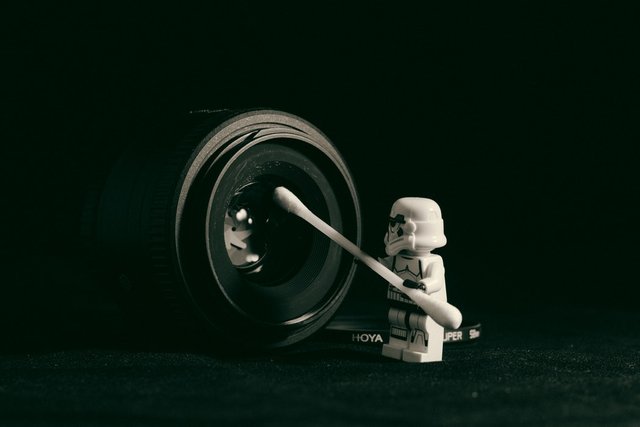 Clear your inner thoughts to focus better. (Photo Credit: James Pond/Unsplash)
Clear your inner thoughts to focus better. (Photo Credit: James Pond/Unsplash)To fix this, we may have to solve that issue or better still, come up with a plan to work through it. In Goleman's words,
"It's not the chatter of people around us that is the most powerful distractor, but rather the chatter of our own minds".
How do I gain focus?
Now that we have gone through all that causes distraction let's go through a few suggestions to help keep us on track.
Meditate: The human mind tends to act like our physical muscles, we need to strength it by exercising it more frequently though we should bear in mind that our "attention muscle" gets fatigued if stressed too much.
 How many can you handle at same time? (Photo Credit: Josep M Suria/Freepik)
How many can you handle at same time? (Photo Credit: Josep M Suria/Freepik)"People think focus means saying yes to the things you've got to focus on. But that's not what it means at all. It means saying no to the hundred other good ideas that there are. You have to pick carefully" - Steve Jobs.
Slowdown on Multitasking: The more we multitask, we tend to train our brains into doing too many things at the same time thereby making us unable to focus on a particular thing when we need to. The brain will always want more.
"Multitasking actually drops our IQ, causing us to make mistakes and miss subtle cues" - David Rock
We tend to have issues with letting go of irrelevant curls when we multitask. To fight this, it is important to have a to-do-list. A computer-science professor Cal Newport have this to say about having a to-do-list,
"having a recording of all the things you still need to do cab help you stay focused on the upcoming task". He said that in relation to Zeigamik effect(the possibility or remaining more concerned about unfinished jobs with little or nor regards for the number of finished jobs).
To-do-list also help you work on the most important task and even helps allocate time to specific tasks.
Lose yourself in something you enjoy: This is one very integral part of focus development. It is important to start with things you enjoy doing so sorry you don't have get tired or bored easily. With that, we tend to find ourselves giving more to the task though at this point we may not have developed good focus but because we do enjoy what we do with tend to allocate more attention to it. (What a better way to get started)
Find the big why: This is also as important as finding something you enjoy, when the purpose of the task is clearly defined, when tend to see more reasons doing that task thereby allocating more attention to getting the job done.
Rest: The importance of "rest" can not be over emphasized in very area of our life even machines do need rest so I won't say much on this. 😁
Train your brain: Just like our physical muscles, it is important to train our brain into what we expect from it. Just like multitasking suggests the brain needs to have eye on more activities than one, it is also important to train the brain in a manner it will help us gain and stay focus when we needs it to. We can try some exercises promoted by Lumosity or Cogmod.
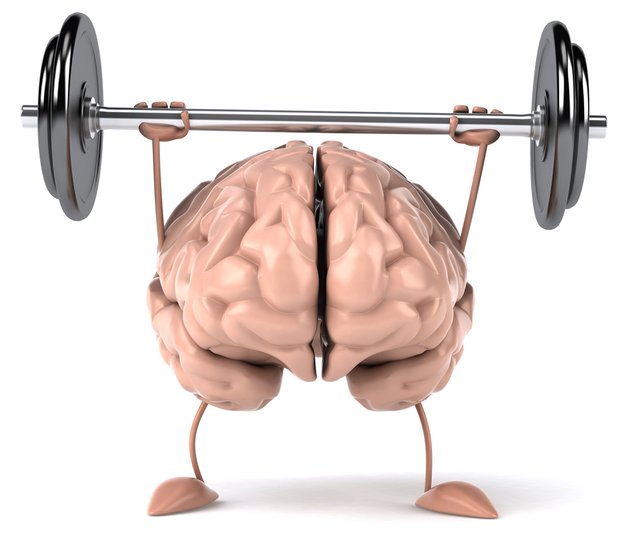 The human brain can be subjected to a way of life. (Photo Credit: Mental Fitness/Innerchange)
The human brain can be subjected to a way of life. (Photo Credit: Mental Fitness/Innerchange)We can also block outside stimuli maybe by trying Joshua Foer's method which he used while training for the U. S. I Memory Championship by wearing face mask. Or the Pomodoro technique, after focusing on a task for some time say 25 minutes, you take a short break say 5 minutes and after four(4) periods you take a longer break of about 15 - 30 minutes.
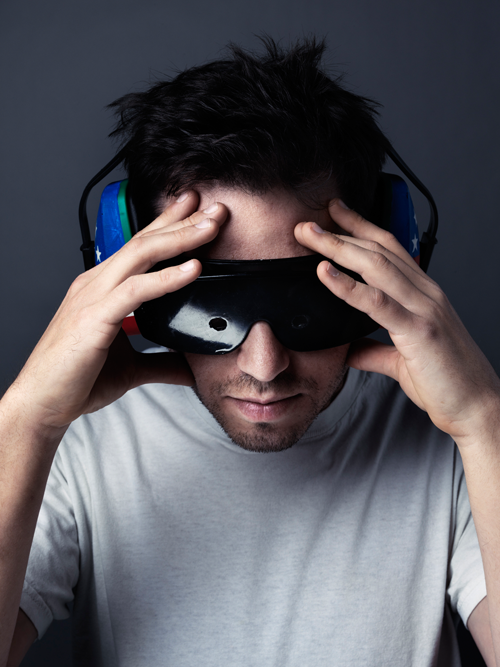 You can train your brain to resist it's surroundings. (Photo Credit: Max Deutsch)
You can train your brain to resist it's surroundings. (Photo Credit: Max Deutsch)We can also try the "20 - 20 -20 rule" which states that "for every 20 minutes, take 20 seconds to stare at an object at distance of at least 20 feet away.
Final note.
Just like the Newton's first laws of motion,
In an inertial frame of reference, an object either remains at rest or continues to move at a constant velocity, unless acted upon by a force.ref
Our mind tends to get either attracted or we loss attraction (get distracted) by our surroundings as a result of response to stimuli(transieng attention).
Our brains also reacts the way we have trained it over time.
Reference.
Wilson, Karen; Korn, James H. (5 June 2007). "Attention During Lectures: Beyond Ten Minutes". Teaching of Psychology. 34 (2): 85–89. doi:10.1080/00986280701291291.
Cornish, David; Dukette, Dianne (2009). The Essential 20: Twenty Components of an Excellent Health Care Team. Pittsburgh, PA: RoseDog Books. pp. 72–73. ISBN 1-4349-9555-0. OCLC 721335045.
Ruff, H.A.; Lawson, K.R. (January 1990). "Development of sustained, focused attention in young children during free play". Developmental Psychology. 26 (1): 85–93. doi:10.1037/0012-1649.26.1.85.

Do you write STEM (Science, Technology, Engineering, and Mathematics) related posts? Then you should consider joining the #steemSTEM community on discord here. If you happen to be from Nigeria, you should also consider including the #stemng tag in your post. You can visit @stemng for more information.

Superb piece on Focus man...... Staying focused is Really Important & lately i have included meditation to my daily routine to train my Brain
Congratulations @nwambe! You received a personal award!
Click here to view your Board
Congratulations @nwambe! You received a personal award!
You can view your badges on your Steem Board and compare to others on the Steem Ranking
Vote for @Steemitboard as a witness to get one more award and increased upvotes!